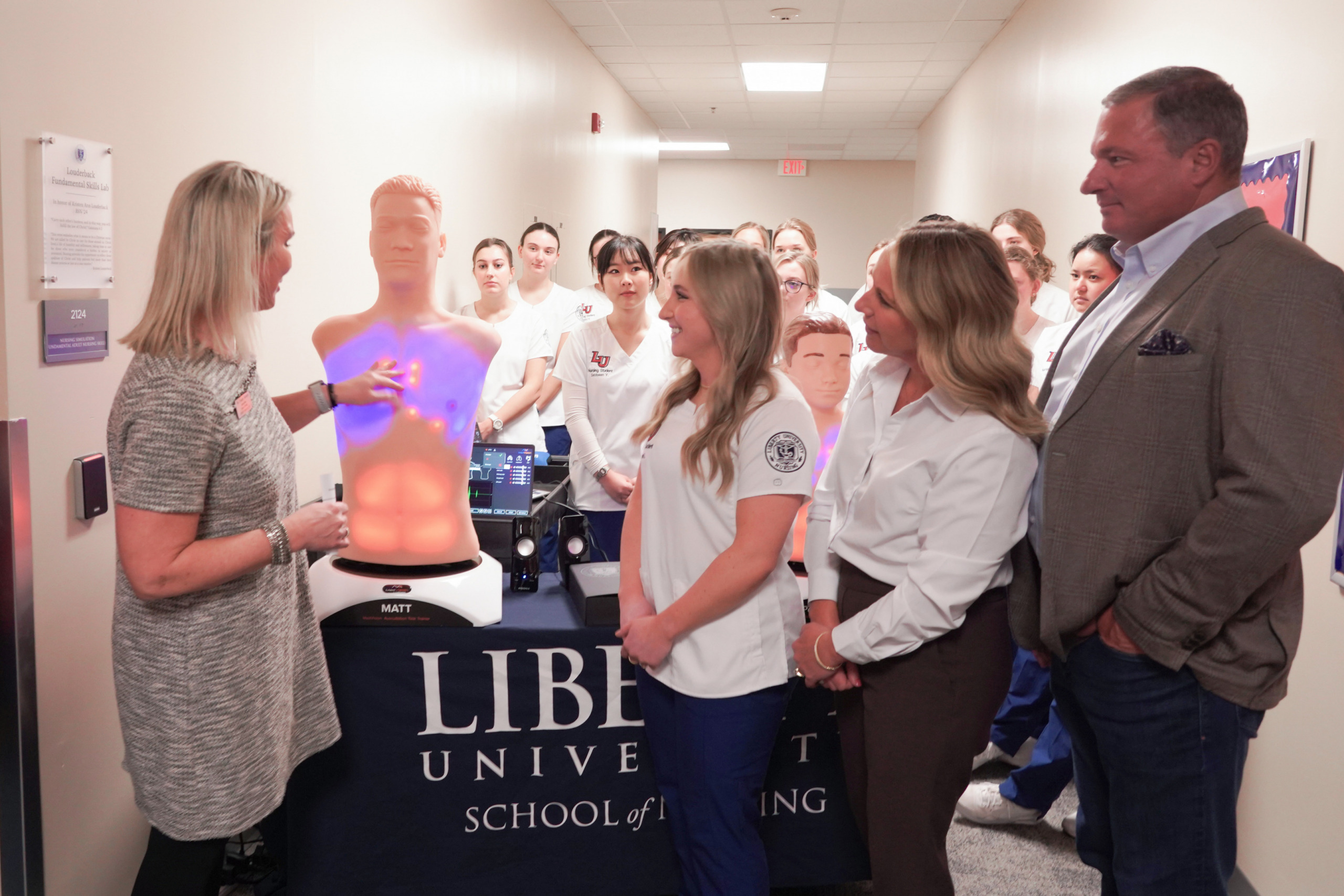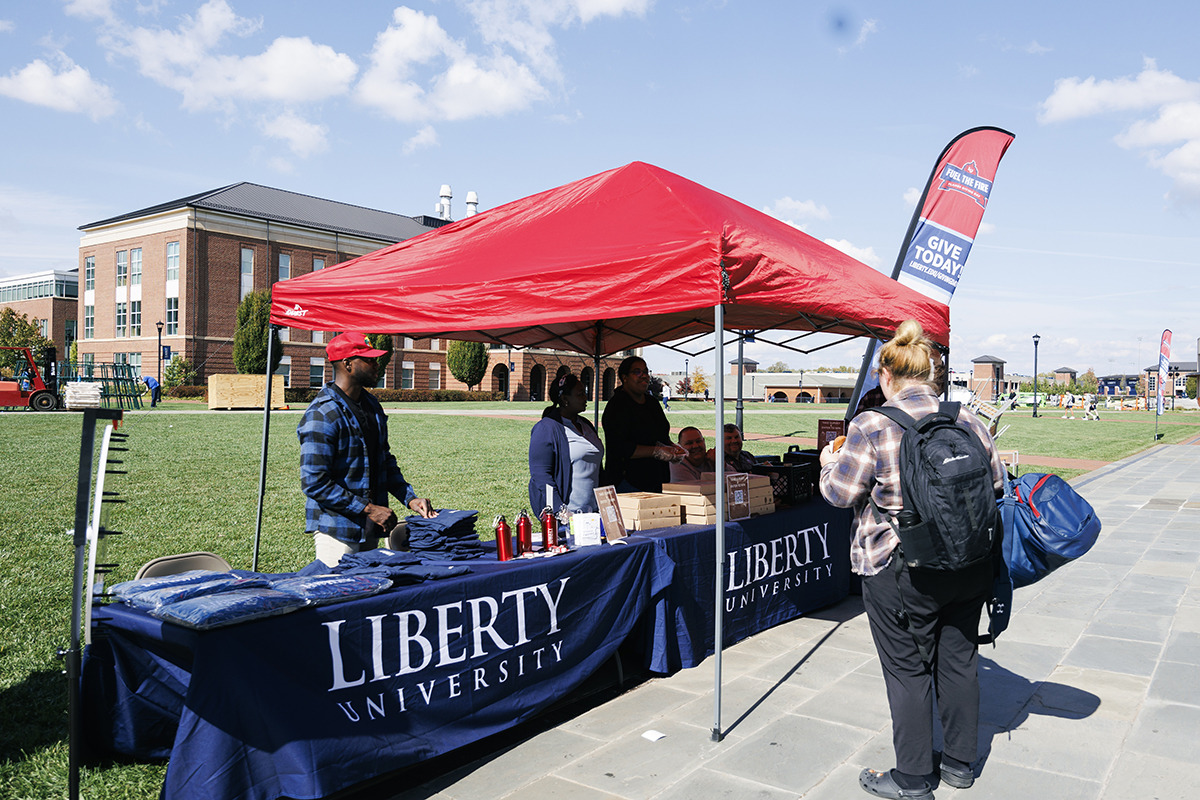Search News Archives
Filter News Articles
Additional Navigation
Liberty celebrates its biblical foundation with dedication of Rawlings Scriptorium
October 19, 2018 : By Office of Communications & Public Engagement
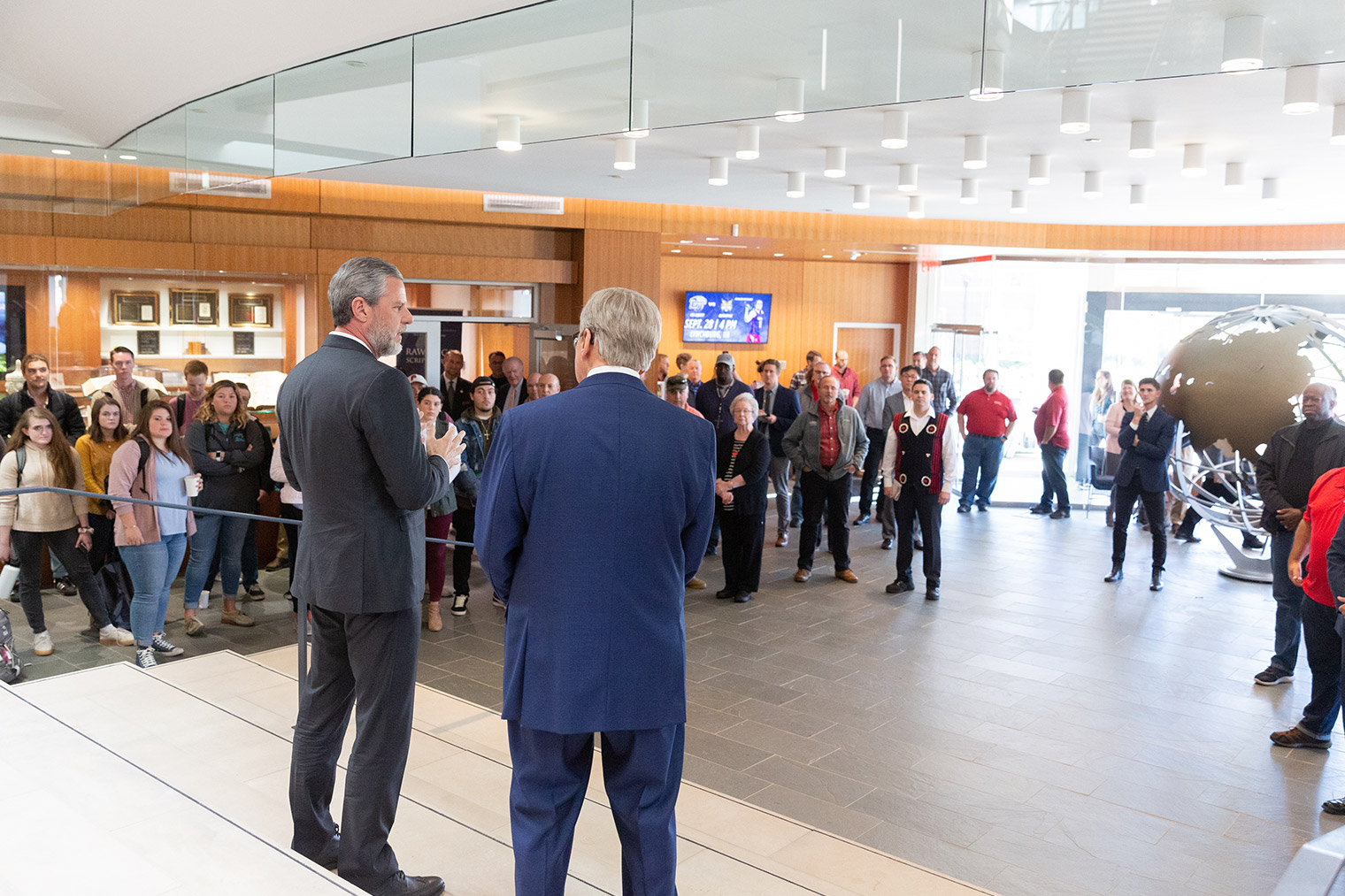 Built at the base of Liberty University’s newest and most visible landmark, the Freedom Tower, is a special museum that preserves, shares, and celebrates the history of the Bible: the Rawlings Scriptorium.
Built at the base of Liberty University’s newest and most visible landmark, the Freedom Tower, is a special museum that preserves, shares, and celebrates the history of the Bible: the Rawlings Scriptorium.
The scriptorium (a traditional term for where manuscripts are copied or storied) is located off the main lobby of the tower, which is also home to Liberty’s Rawlings School of Divinity, the world’s largest school for religious studies and ministerial training. The prominent placement of the scriptorium is significant as it reflects the university’s unwavering Christian foundation and commitment to sound biblical teaching.
On Friday, campus administrators, faculty, students, alumni, and special guests met for a dedication ceremony and tours of the scriptorium.
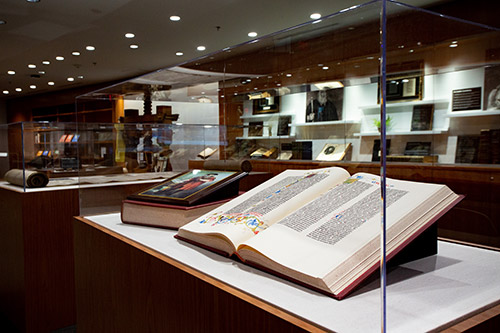 The Rawlings Scriptorium features a world-class collection of rare books and Bibles valued at over $1 million. The collection was provided by the Rawlings Foundation. Dr. Harold Rawlings started the collection in order to educate Christians about the incredible history of how the English Bible became accessible to the masses.
The Rawlings Scriptorium features a world-class collection of rare books and Bibles valued at over $1 million. The collection was provided by the Rawlings Foundation. Dr. Harold Rawlings started the collection in order to educate Christians about the incredible history of how the English Bible became accessible to the masses.
Rawlings attended the ceremony, held in the nearby Montview Student Union, and shared his appreciation for Liberty.
“One of the reasons we have this museum is to be a continual reminder to the people of this institution, to the people of the world, that Liberty University is different; it is a Bible-centered school,” Rawlings said. “It is the Word of God that makes the difference at this institution. … All of you are here to further the cause of Jesus Christ and the Word of God.”
Liberty President Jerry Falwell thanked Dr. Rawlings and his brothers, George, Carrol, and Herb, who together have donated more than $15 million to the university in recent years, for making the Freedom Tower and Rawlings School of Divinity project possible.
“Your family has an incredible legacy; I greatly appreciate it,” Falwell said as he thanked Dr. Rawlings publicly. “It is so important to our university to have this scriptorium here, we couldn’t appreciate it more.”
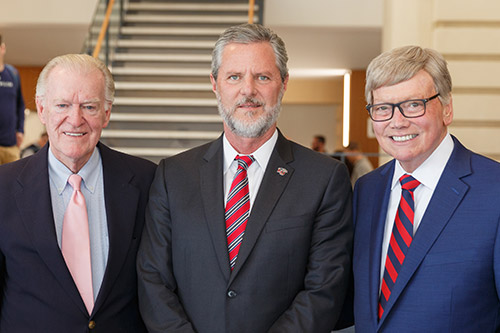 Falwell told the crowd that Will Graham, grandson of the late Rev. Billy Graham and a Liberty alumnus and current Board of Trustees member, recently told him that Liberty is where he fell in love with the Bible, just as Falwell himself did in the 1980s. He said that thanks to the Rawlings’ generosity, the Freedom Tower and the scriptorium will ensure that the legacy of studying Scripture will live on for generations.
Falwell told the crowd that Will Graham, grandson of the late Rev. Billy Graham and a Liberty alumnus and current Board of Trustees member, recently told him that Liberty is where he fell in love with the Bible, just as Falwell himself did in the 1980s. He said that thanks to the Rawlings’ generosity, the Freedom Tower and the scriptorium will ensure that the legacy of studying Scripture will live on for generations.
“One of the reasons I am so proud (of Liberty),” Falwell said, “is the critical thinking, the academic freedom that we have here.”
Dr. Ed Hindson, dean of the Rawlings School of Divinity, noted the intentionality behind the scriptorium’s location.
“We love the idea that you have the Bible centered at the base of the building,” Hindson said of the scriptorium, “the globe (in the lobby) reminds us to go out and reach the world and make a difference, and the tower points heavenward and reminds us that it is all about Him.”
School of Divinity department chairs led the group in dedicatory prayers before the scriptorium was opened for tours.
 Among the English texts on display are a first edition 1537 Matthews Bible (the first English Bible authorized by King Henry VIII), first edition 1560 Geneva Bible (the Bible brought to America by the Pilgrims in 1620), a 1561 Tyndale New Testament, a first edition 1568 Bishops Bible, and two first edition 1611 King James Bibles. Other items include a first edition of Fox’s Book of Martyrs from the 1500s and fragments of the Dead Sea Scrolls, a rare find on any university campus.
Among the English texts on display are a first edition 1537 Matthews Bible (the first English Bible authorized by King Henry VIII), first edition 1560 Geneva Bible (the Bible brought to America by the Pilgrims in 1620), a 1561 Tyndale New Testament, a first edition 1568 Bishops Bible, and two first edition 1611 King James Bibles. Other items include a first edition of Fox’s Book of Martyrs from the 1500s and fragments of the Dead Sea Scrolls, a rare find on any university campus.
Museum curator and Liberty alumnus Gene Albert has helped secure a variety of other items, including an 1861 first complete Native American Bible, the notes of famed English Baptist preacher Charles Hadden Spurgeon, and “the tiniest Bible,” printed on a thumb-size sheet of microfilm. Also on display is a life-size replica of the Gutenberg press, the first movable-type printing press that made it possible for printed materials, like the Bible, to become available to the masses in the mid-1400s.
The scriptorium is free and open to the public. Email scriptorium@liberty.edu for more information or to schedule a visit.
